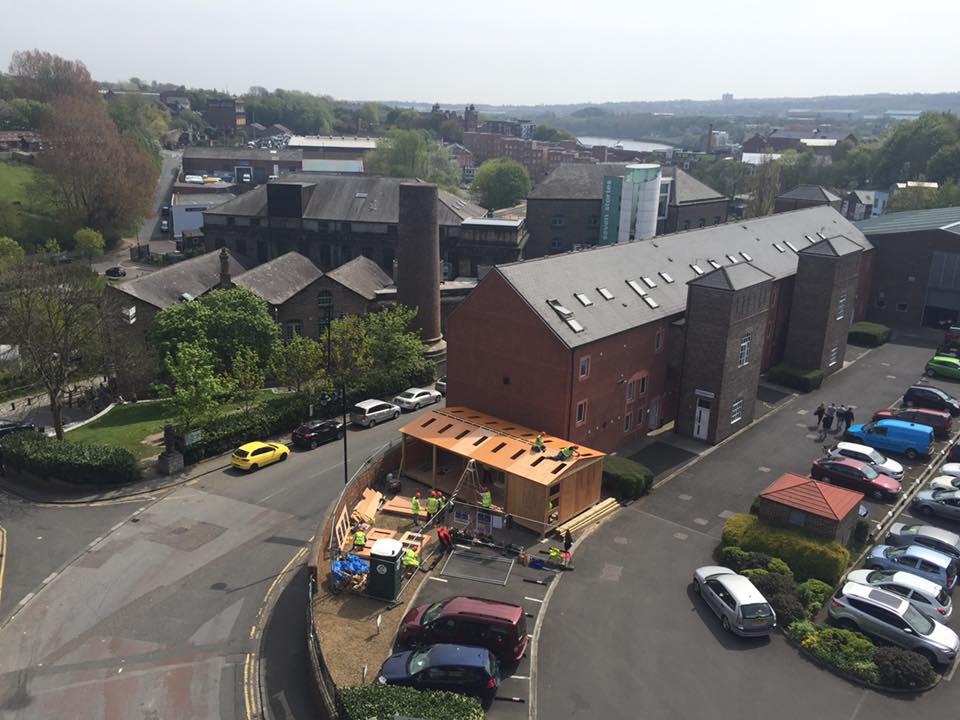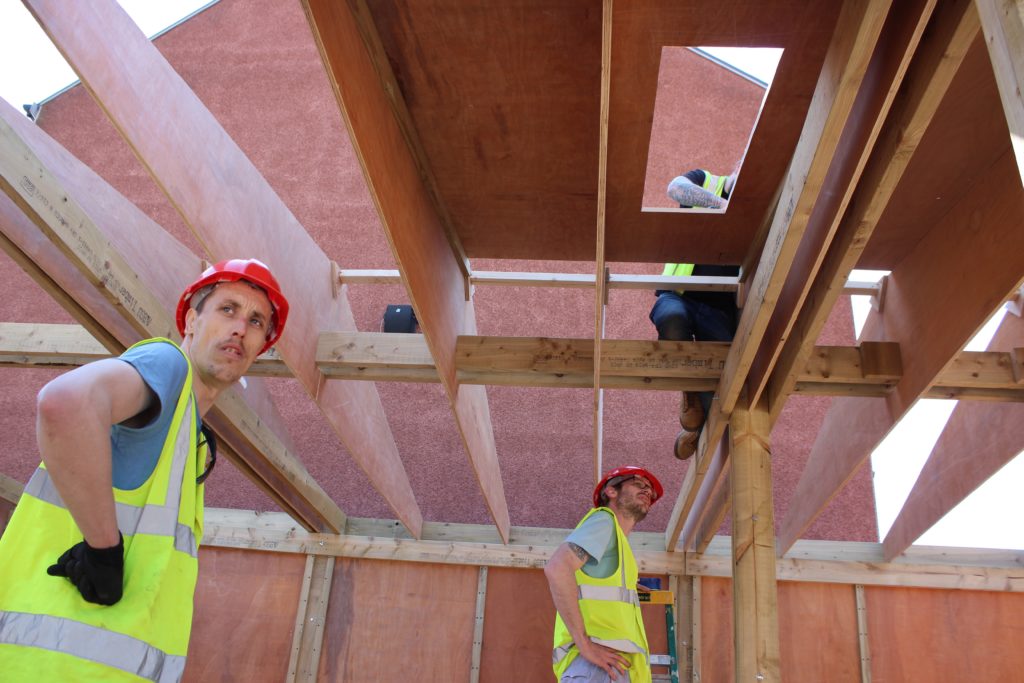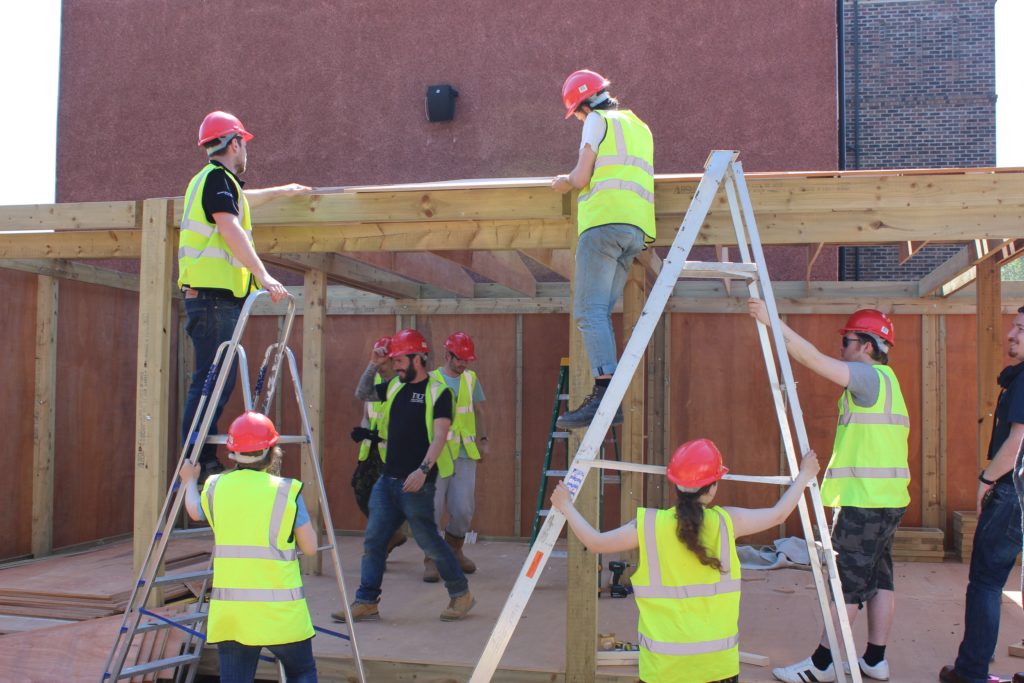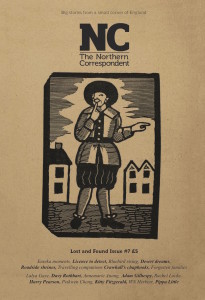Two-thirds of local households are just a couple of pay packets away from losing their home. Self-build housing could help the homeless in more ways than one, says Julia Heslop
From red tops to broadsheets, there’s wide agreement that we’re in the middle of a housing crisis. Coupled with regressive austerity policies and welfare reform, housing has never been so politically and socially divisive. At the same time, we are also seeing a rise in increasingly “informal” ways of home-making, from sofa surfing to “beds in sheds” and tent cities. Homeless charity Crisis is reporting a huge rise in rough sleeping, which increased by 55% in England from 2010-2014, whilst 68% of households in Newcastle are only two pay packets away from losing their home.
Our response to this housing crisis is PROTOHOME, a self-build housing prototype constructed by members of Crisis over the past three months. It’s temporarily sited in the Ouseburn area of Newcastle and will be open to the public from this evening (13th May, as part of the the Late Shows) until August. This “house” will host a range of events, from film screenings, to artist residencies, forums, workshops, performances and more, examining issues of self-build housing, homelessness, austerity and the politics of land and development.

We’re hoping that the project will help to reconnect notions of self-build housing to self-help, where self construction confronts issues of territorial stigmatisation, inequality, rising homelessness, intergenerational unemployment, so called “failing” housing markets and empty homes.
It’s not so much about creating a finished “product” in the form of a working house – PROTOHOME is essentially just a shell that doesn’t have any services attached to it – but its value lies in the process of becoming, the process that both the house and the people who made it have gone through. For those involved in the project who have experienced homelessness, building has been a learning process, one that has been therapeutic, has helped to build confidence and has forged friendships and social ties.
However, that’s not to say that PROTOHOME couldn’t be replicated into a fully functioning house in the future – indeed it’s very much a provocation for the city. We hope that this project can initiate a conversation about housing that reframes self-build as an educational and therapeutic tool, to widen access to housing through participation, particularly for low income groups. There are some encouraging signs: we will be running a couple of workshops with Newcastle City Council which seems keen to promote self-build in a city which has a dearth of housing organisations focused on self-help.

Photography by Julia Heslop
“I think, fundamentally, that being involved in a collective, community-based, socially-grounded-and-rooted project like this allows real growth and change across the board – and at a rapid pace too,” one member of our group told me. “Construction. Solid, long-lasting, sustainable construction – which itself has room for growth, expansion and continuing development – it all involves tapping into individual and collective skillsets as well as creativity.”
For the many people involved, this project has created an awareness and a confidence in our ability to self-build housing, something which has largely dropped out of the collective imagination – something that we have un-learned. The design, which was completed by xsite architecture and put into being by Crisis members alongside Tilt Artistic Services, is based on the Segal method of timber frame construction which is specifically designed for untrained self-builders and offers a flexible approach to how a house is designed, built and used. It makes self-building achievable, even for those without any previous woodwork skills. It’s a system that allows training learning to occur whilst building.

Photography by Julia Heslop
So this project is ultimately about reframing housing as something that is active – as a verb, as something that has social use and value. It challenges the preoccupation we all have with the economic function of housing – as some kind of collateral, as a pension, as an inheritance. We hope that it provides a small glimpse into more engaged and engaging methods of house production, building a home that has individual and collective learning at its heart.
Julia Heslop is an artist, writer and PhD student at Durham University. You can follow her on Twitter. The PROTOHOME will open its doors to the public from 7pm this evening (13th May).

